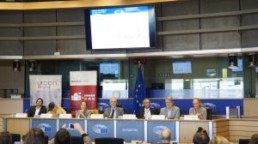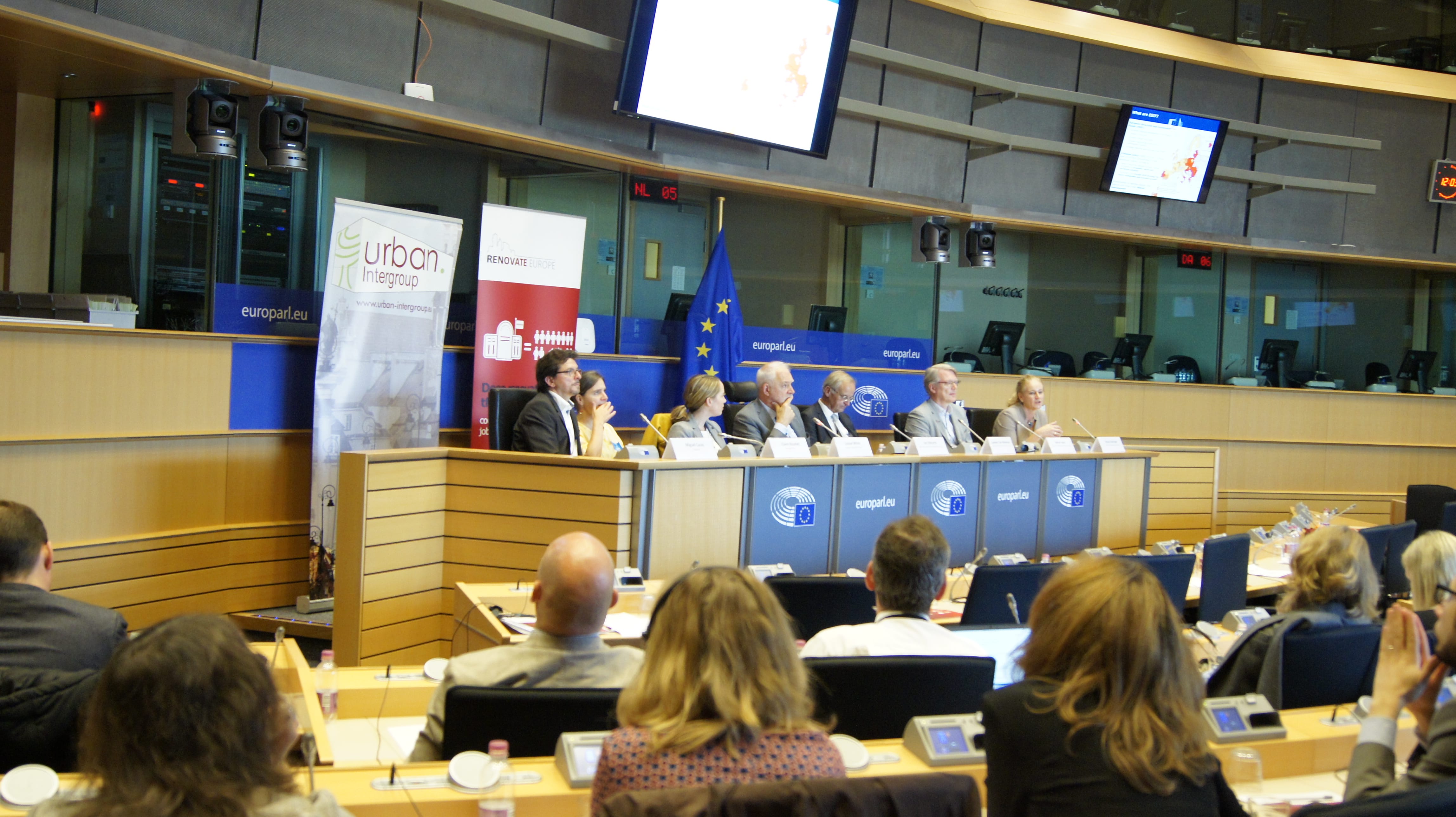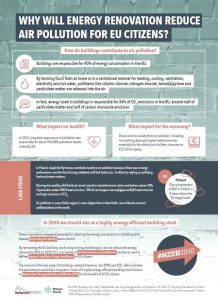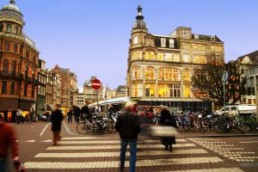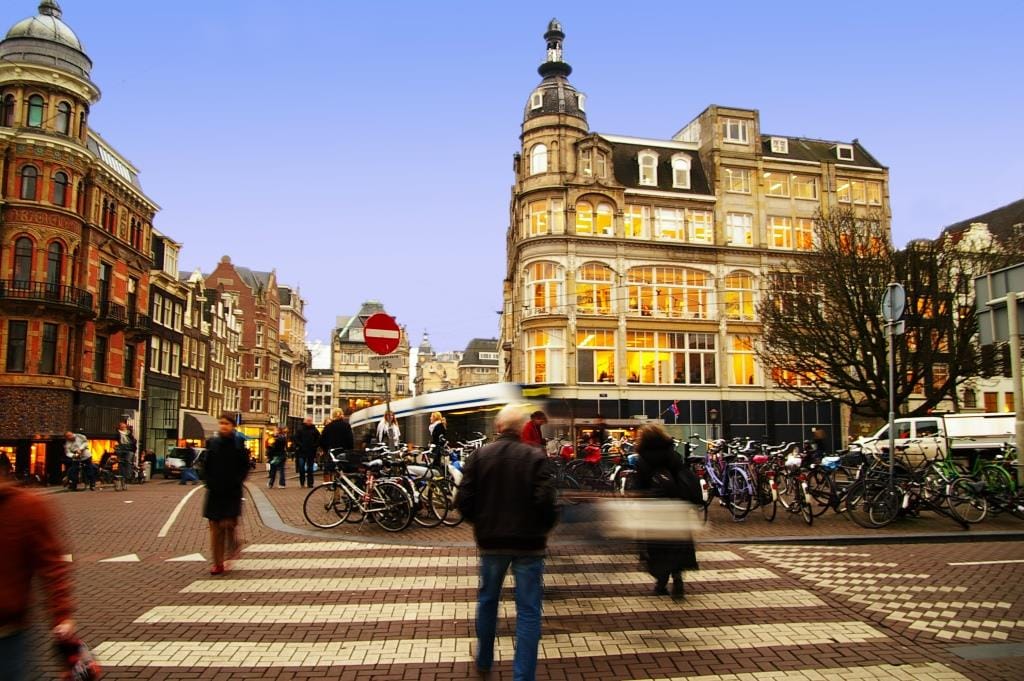Joint Event with the URBAN Intergroup - 26th September
Funding For Energy Renovation as a Stimulus for Urban Regeneration
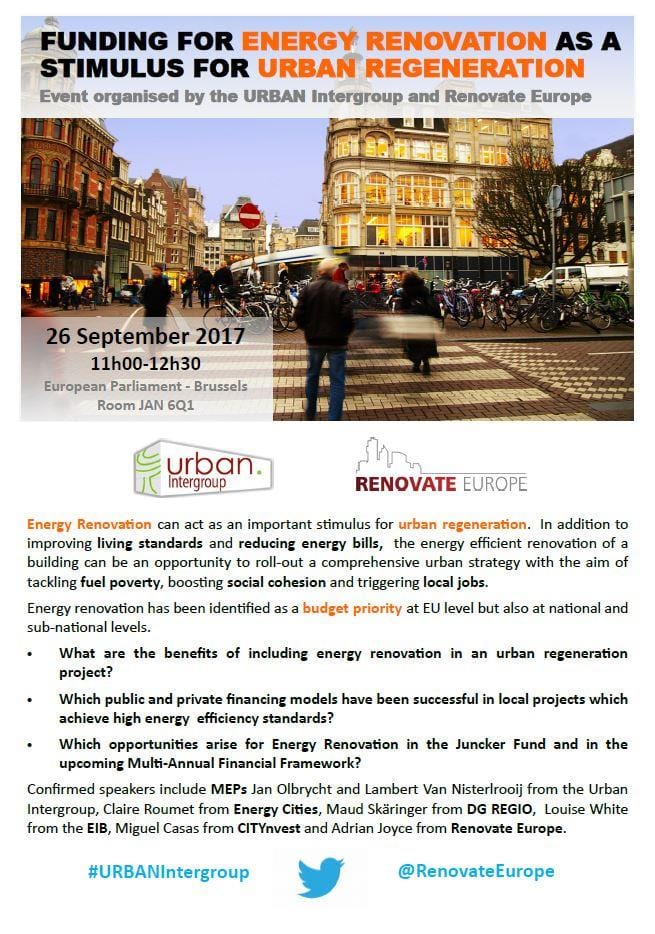 Jointly organized by the URBAN Intergroup and Renovate Europe, this event took place on Tuesday 26th September in the European Parliament.
Jointly organized by the URBAN Intergroup and Renovate Europe, this event took place on Tuesday 26th September in the European Parliament.
Click here to read the PRESS RELEASE from the event
PPT presentations from the event are available to download in the Agenda below
11h00 Welcoming Remarks
MEP Lambert Van Nistelrooij, Vice-President of the URBAN Intergroup
Adrian Joyce, Director of the Renovate Europe Campaign
Session I: Learning from local success stories of Urban Regeneration
Moderator: MEP Lambert Van Nistelrooij, Vice-President of the URBAN Intergroup
11h10 The Multiple Benefits of Energy Renovation for Urban Regeneration - Examples from City Level
Claire Roumet, Energy Cities
11h25 Blending Public & Private Financing for Energy Renovation - Best Examples of Urban Regeneration
Miguel Casas, Citynvest
11h40 Q&A
Session II: EU Funding Opportunities for Energy Renovation
Moderator: MEP Jan Olbrycht, President of the URBAN Intergroup
11h50 European Investment Bank Support for Energy Efficiency
Louise White, European Investment Bank
12h00 Cohesion Policy Support for Energy Renovation
Maud Skäringer, DG Regio, European Commission
12h10 Q&A
12h20 Closing Remarks
MEP Jan Olbrycht, President of the URBAN Intergroup
Adrian Joyce, Director of the Renovate Europe Campaign
The event was held in the context of the ongoing negotiations on the review of the Energy Performance of Buildings Directive, due to be voted in the EP early October, and sought to draw a link with available funding and opportunities to help Member States implement buildings-related legislation, through the Juncker Fund, the EIB and the next Multi-Annual Financial Framework, but also raising awareness about successful local initiatives.
Energy renovation can act as an important stimulus for urban regeneration. In addition to improving living standards and reducing energy bills, the energy efficient renovation of a building can be an opportunity to roll-out a comprehensive urban strategy with the aim of tackling fuel poverty, boosting social cohesion and triggering local jobs. The event will tackle the following questions:
- What are the benefits of including energy renovation in an urban regeneration project?
- Which public and private financing models have been successful in local projects which achieve high energy efficiency standards?
- Which opportunities arise for Energy Renovation in the Juncker Fund and in the upcoming Multi-Annual Financial Framework?
Energy Renovations Benefit Communities, not Speculators
BRIEFING NOTE 3/2017:
Over 1.8m refurbished households in Europe received an average €724 a year cut in their energy bills over the first half of this decade, but more impressive is the growing body of evidence that their communities blossomed as a result. Around half a million jobs have been created by the €33bn of EU monies spent on social housing programme in areas of high social deprivation - that's 15 jobs for every €1m invested. But the renovation projects have also left a legacy of friendlier communities and improvements to the quality of life...
Learn more about the event Funding for Energy Renovation as a Stimulus for Urban Regeneration organized by Renovate Europe and the URBAN Intergroup.
Read other Renovate Europe Briefings
REDay2017 Posters in Brussels Metro
Have you seen the #REDay posters in the Brussels Metro?
Take a photo and tweets them!
Op-ed: Paris Agreement under threat as member states water down building performance measures (Euractiv)
Published by Euractiv on: 20 June 2017 | While President Trump is grabbing world headlines by publicly trashing the Paris climate agreement, EU member states are also trying to sabotage this deal by watering down measures in the Energy Performance of Buildings Directive (EPBD) and Energy Efficiency Directive (EED), writes Adrian Joyce.
Interview with MEP Bendt Bendtsen

MEP Bendt Bendtsen is Rapporteur for the Draft Report on the Revision of the Energy Performance of Buildings Directive.
Renovate Europe spoke to Bendt Bendtsen on 10 May 2017 in the European Parliament.
Is there a broad consensus in Parliament on the EPBD? Do you see many problems in getting your proposals through?
Bendt Bendtsen:
Generally speaking, there seems to be a broad agreement that buildings must contribute more to decarbonisation efforts than they do today. That being said, of course we have different priorities and ideas in the Parliament on how to get there - and I must do what I can to get everyone on board. I really believe that the EPBD can deliver and it shall deliver. It will be good for Europeans and for European companies and if EPBD delivers some tangible savings, Europe's energy intensive companies, all the ETS companies, will benefit directly. There are many benefits to reap.
I see an EPBD that creates growth, innovation, jobs and at the same time we will solve a lot of problems caused by rising demand for imported fossil fuels from Putin and also of oil from the Middle East. It is a question of security of supply and sustainability. I would not mind saving some of the billions of Euros that we spend on importing energy to Europe every year - by saving energy in our buildings’ consumption and by using the energy smarter.
I see so many advantages to this file that it is obvious for me that we must get a strong and ambitious directive in the end. However, to get there, we first need a strong position in the Parliament, so that we can face the Council, who seem mainly to be interested in watering the proposal down. It will become difficult to get a good result if these members of Council do not change their minds.
What will be the result – for Europe - if the Members of the Council are successful in watering down the EPBD?
Bendt Bendtsen:
For the Parliament, our ambition is that we further commit Member States to take actions to deliver the needed results and improvements of the building stock. When working with the Energy Efficiency Directive in 2010, we already came a long way - but much more is needed.
Since new buildings are only 1-1.5% of the total building mass, most of the buildings we will have in 2050 are here now, and many of them are inefficient. Therefore, we really need to drive forward the renovation of buildings.
As I see it, the Ministers in the Council will miss a huge opportunity to create jobs, especially in our SMEs in Europe, they will miss an opportunity to make European homes and offices healthier and they will continue pouring our money in the hands of Russians in exchange for imported fossil fuels. It will make Europe vulnerable, dependent on others and the energy bills much higher than needed for European consumers. They will of course also disregard the climate targets set by the Heads of State and Government.
Member States signed up to the Paris climate agreement -why do you think they are baulking at the measures that would allow them to achieve these?
Bendt Bendtsen:
Because now it is in the hands of the energy ministers. Take the Energy Union – we would not have had an Energy Union flagship project with clear targets if it had been up to the energy ministers to decide.
Do you think the energy ministers believe there are more cost-effective ways of cutting emissions than energy efficiency?
Bendt Bendtsen:
We know that saving one kW comes at roughly one fourth of the price of buying one kW - so clearly it pays off. However, I acknowledge that there is a concern, also with the ministers, that energy savings and increased energy efficiency can only be achieved by less production in Europe, but I do not agree. As a Dane, I can testify to energy efficiency measures resulting in more production, more jobs and lower energy consumption. Denmark has doubled its GDP without using more energy.
I know that conditions are diverse across Europe, and this is why we do not dictate the actions that Member States must take - but we do expect them to deliver measurable results on the indicated parameters.
However, to do it cost-effectively, naturally our buildings should contribute more - as there is a huge potential - rather than forcing more expensive savings measures on other sectors. Our major problem with the EPBD is the need to crack the nut of financing.
We know that many private actors are looking to invest these days, but they need a stable framework and security of investment, so we need to provide a strong political signal that we prioritize a better building stock.
It is excellent that we have public money, also at European level, for example by the European Investment Bank, the European Fund for Strategic Investments and the Structural Funds. It is a good tool to have to gear private financing for renovations and should be used to take off the top of the risk for investors with public money. Because public money alone does not solve the challenges. We really need private money out working and in the draft of the EPBD, I have committed Member States to do more in their long-term renovation strategies - of course with respect for the principle of subsidiarity. But to achieve the targets, I really need more commitment from the Member States to the long-term renovation strategies, including milestones indicating the progress made.
Why are the milestones so important?
Bendt Bendtsen:
The core value of milestones for 2030 and 2040 is to ensure that the Member States deliver as agreed and to monitor that everyone are well on track to meet the 2050 target. That is why we need those clear milestones. They also give a chance to Member States to correct national policies that may not be working as intended and to share experiences on the actions taken to reach the milestones.
Do you think that the EU could set a yearly buildings emissions reductions target in line with the Paris Agreement?
Bendt Bendtsen:
I think you can tackle this in different ways, and I will not at this moment lock myself to one option over another. I have to listen to the political majority and find the best and broadest agreements. I believe we have to start with the fundamentals of boosting renovations, big and small, to provide the European energy consumers the building stock they deserve - and the corresponding health benefits and lower energy bills.
END

